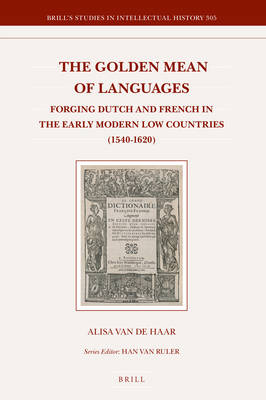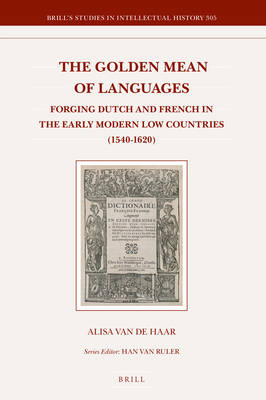
- Afhalen na 1 uur in een winkel met voorraad
- Gratis thuislevering in België vanaf € 30
- Ruim aanbod met 7 miljoen producten
- Afhalen na 1 uur in een winkel met voorraad
- Gratis thuislevering in België vanaf € 30
- Ruim aanbod met 7 miljoen producten
Zoeken
The Golden Mean of Languages
Forging Dutch and French in the Early Modern Low Countries (1540-1620)
Alisa Van de Haar
€ 169,46
+ 338 punten
Omschrijving
In The Golden Mean of Languages, Alisa van de Haar sheds new light on the debates regarding the form and status of the vernacular in the early modern Low Countries, where both Dutch and French were local tongues. The fascination with the history, grammar, spelling, and vocabulary of Dutch and French has been studied mainly from monolingual perspectives tracing the development towards modern Dutch or French. Van de Haar shows that the discussions on these languages were rooted in multilingual environments, in particular in French schools, Calvinist churches, printing houses, and chambers of rhetoric. The proposals that were formulated there to forge Dutch and French into useful forms were not directed solely at uniformization but were much more diverse.
Specificaties
Betrokkenen
- Auteur(s):
- Uitgeverij:
Inhoud
- Aantal bladzijden:
- 440
- Taal:
- Engels
- Reeks:
- Reeksnummer:
- nr. 305
Eigenschappen
- Productcode (EAN):
- 9789004355217
- Verschijningsdatum:
- 11/07/2019
- Uitvoering:
- Hardcover
- Formaat:
- Genaaid
- Afmetingen:
- 160 mm x 236 mm
- Gewicht:
- 1020 g

Alleen bij Standaard Boekhandel
+ 338 punten op je klantenkaart van Standaard Boekhandel
Beoordelingen
We publiceren alleen reviews die voldoen aan de voorwaarden voor reviews. Bekijk onze voorwaarden voor reviews.











